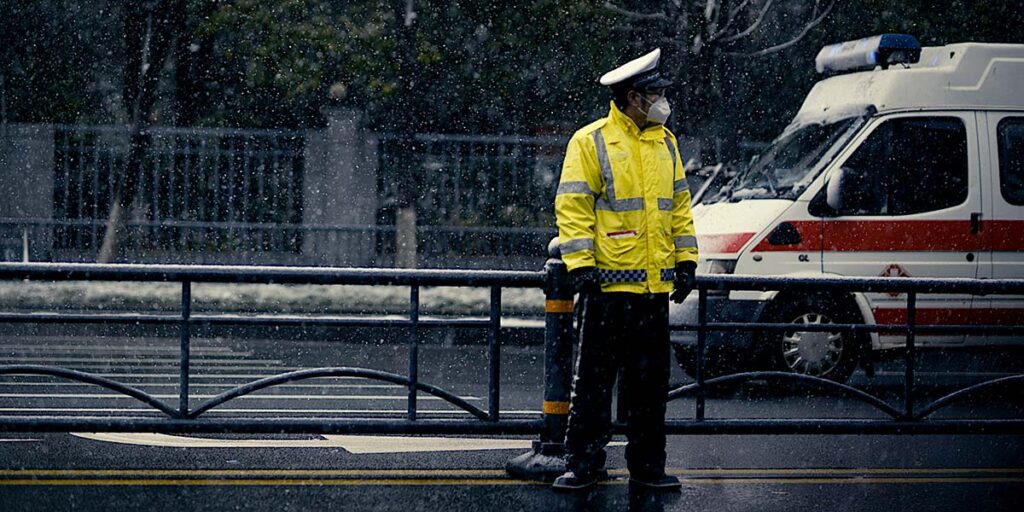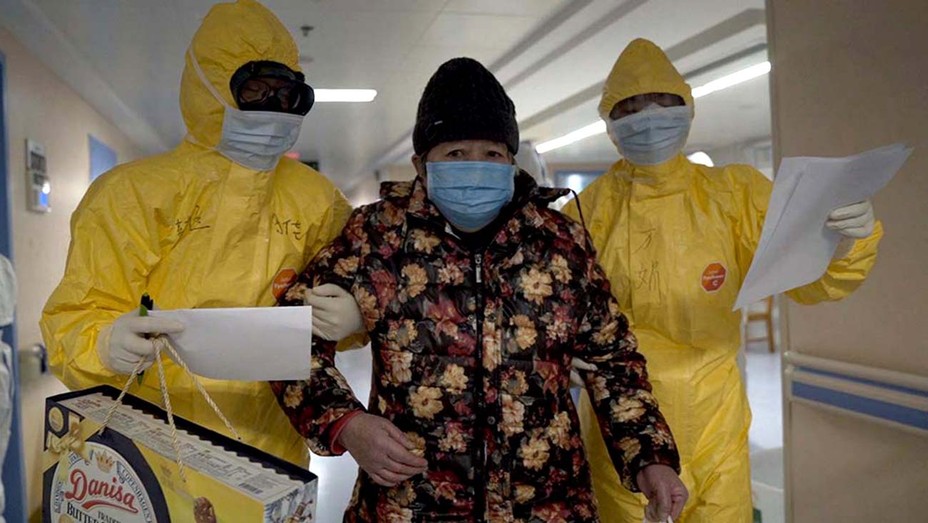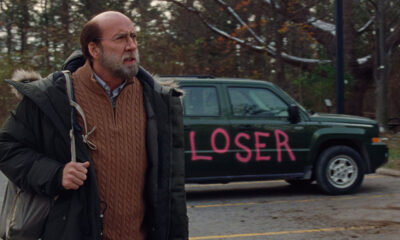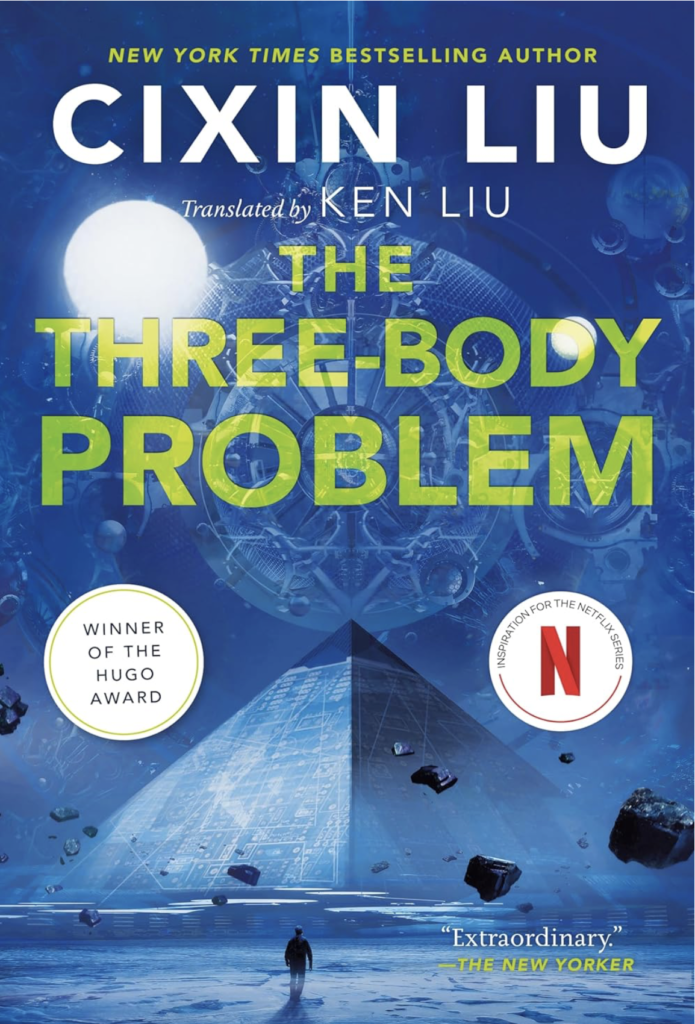TIFF 2020
TIFF 2020: 76 DAYS IS DOWNRIGHT UPSETTING


Many of us have been consistently fed daily reports about the coronavirus ever since the first infection that came from a wet market in Wuhan. Having been through SARS, a lot of us considered this to be a temporary thing but it has outlasted many of the experts’ expectations including Donald Trump. Not knowing that this infectious disease of COVID-19 would have on the world and its fatalities and putting many countries on lockdown, we are going to be never sure about the true impact of this pandemic. The recovery is unprecedented as we see people who are out of work, children being forced to do online schooling, racial division causing riots and the fight between maskers and anti-maskers. Simply put some believe that the pandemic is all a hoax and that there is another agenda at hand by the government or the elite. Despite the media and major news outlets around the world being on top of this life-changing event and the daily regurgitation of number cases, deaths and recoveries, some take the stance that this should not be taken seriously because it is not going to affect them.
Directors Hao Wu and Weixi Chen can change the minds of those anti-maskers or the non-believers of COVID-19 after watching their documentary 76 Days which premiered at the Toronto International Film Festival. This being the first of many pandemic documentaries that will follow, 76 Days follows the frontline workers of a hospital in Wuhan throughout their 76-day lockdown. The 93-minute film starts with the death of a man in which her daughter, who is also in the hospital as well, wants to say her last goodbyes to him. Unfortunately, he is in a body bag and it cannot be opened up because of the risk of infection to the frontliners or an unwanted outbreak in the hospital. Even though these workers and the daughter are in major hazmat suits that do not reveal any skin uncovered, the right for her to have this moment with her father is immediately taken away. The directors bring your right into the fire and the chaos of this hospital in Wuhan and its disturbing result of a COVID-19 death.
The film continues as we see more of the frontline workers working tirelessly to save the lives of those who are infected. The reality of their unprecedented situation is so heartbreaking but they all reach down within themselves when there is nothing left in the tank to help save lives. Knowing that they can as well be infected with COVID-19 from these patients, these workers must all go through these rules, regulations and guidelines that would make any person go stir crazy. You see many of them run from room to room or floor to floor, sometimes taking a much-needed break in the corridor but it is all of what they have in store.
The workers have to wear many hats or be a jack or jill of all trades in every minute of their shift. They have to appease these patients whom many of the nurses call them “Mommy” or “Daddy” to make them feel that much better. Sometimes they have to feed them because they are unable to feed themselves in their state and convincing them that everything is going to be okay when they know themselves that might not be even the case. These workers have to become overnight masters in technology as some of them have to know all the ins and outs of a ventilator and all the new equipment that is needed in the hospital because of COVID-19. Every worker has to be a maid by maintaining the cleanliness of the hospital by sanitizing every inch of the patient’s rooms as well as their working desks in the corridor. These frontliners are so concerned for their safety you see them sanitizing their hands with gloves on. Furthermore, they are all policing themselves, their co-workers and all the patients who decide to try to escape the room or the hospital in which they are all not allowed out because they might spread the disease.


If the work of the frontliners does not convince an anti-masker or a non-believer then maybe the other focus of the documentary will, that being the COVID-19 patients. Many of these patients are holding on to two very important things which are their life and their phone. Directors Hao Wu and Weixi Chen get up close and personal with some of these patients who many of them have gotten better or worst during their hospitalization. Those who seem to be in the last chapter in their life are trying to keep in contact with their loved ones over the phone and some of them are so sick that they can not even text them. The nurse sometimes has to relay the message to the patient when there is a phone call from a loved one because the patient cannot even hear or hold the phone. There is a sequence in the film where all the deceased patients’ cell phones are put in a bag ready to be sanitized and still getting incoming messages from their loved ones thinking that they are still alive. What is more upsetting is the scene where the hospital can only take a few patients to take care of and when they open the door behind it are many COVID-19 patients ready to be taken care of. Just like many hospitals around the world, this hospital is already running at capacity and many of the infected are outside and waiting like zombies.
76 Days is so upsetting that you might even walk out of the theatre or stop the film if you are watching it online because you know how the story goes. Despite all the sadness and despair that goes within this hospital in a lockdown city of Wuhan which inhabits 11 million people during the winter month of March, the directors try to keep this film even keel with a positive outlook of all the frontline workers. Even when some of the patients have recovered from the sickness and let go from the hospital they do enter the depressing world of a lockdown which has a lot of Shawshank Redemption qualities. For some of the frontliners, they have to inform the next of kin that a family member has passed away due to COVID-19 and pass those sanitized belongings such as their cell phone to them and console them for a minute before going on to their next assignment.
Whether the directors’ intentions were to show you the beginnings of the pandemic, you can’t deny that they filmed the source of this life-changing problem. The upsetting part of 76 Days is the fine line they film this documentary where everyone was transitioning from the world we once knew to the world now which is considered the new normal. Whether the anti-maskers or non-believers still stand pat in their stance, they still have to live with each and everyone one of us is trying to get out of this pandemic. Sometimes looking back is the only way we can all get ahead.
-



 BIPOC4 months ago
BIPOC4 months agoThe Boy and the Heron @TIFF 2023
-



 TIFF 20238 months ago
TIFF 20238 months agoViggo Mortensen in The Dead Don’t Hurt @TIFF2023
-



 ACTORS/ACTRESSES2 months ago
ACTORS/ACTRESSES2 months agoAn Exciting Conversation with Sydney Sweeney @SXSW 2024
-



 Uncategorized9 months ago
Uncategorized9 months agoWillem Dafoe in Gonzo Girl @TIFF 2023
-



 ACTORS/ACTRESSES3 months ago
ACTORS/ACTRESSES3 months agoThe Exciting 96th Oscar Nominations Announced
-



 TIFF 20238 months ago
TIFF 20238 months agoNicolas Cage in Dream Scenario @TIFF 2023
-



 Uncategorized9 months ago
Uncategorized9 months agoSly to close TIFF2023
-



 TRIBECA 202311 months ago
TRIBECA 202311 months agoMilli Vanilli @ Tribeca Film Festival 2023


















